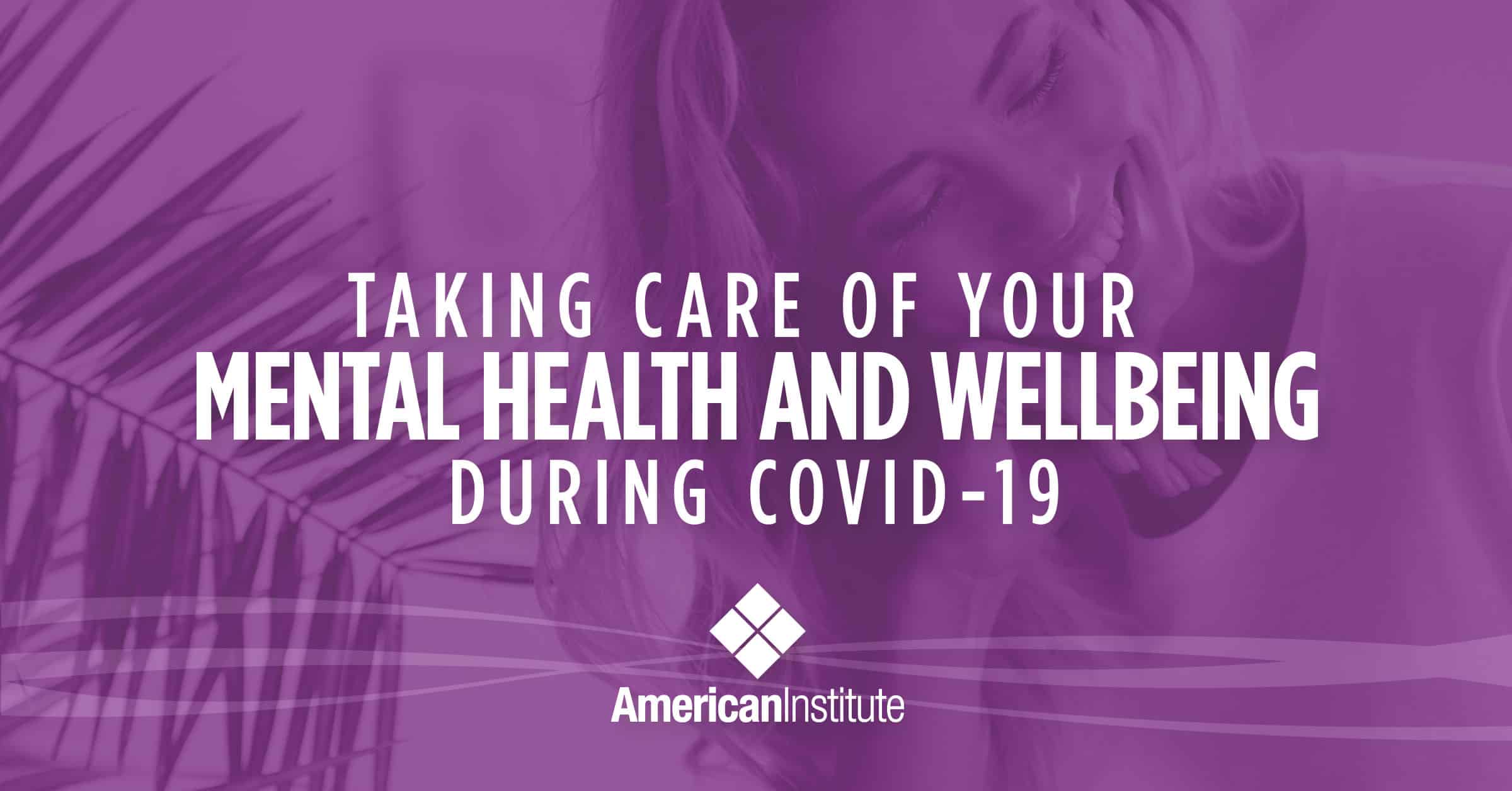As the COVID-19 pandemic evolves, we’re all facing our own struggles. Whether you have a family member who is ill, or you’ve had to cancel a major event like a wedding, this is an extremely difficult time for everyone. If you find that your mental and emotional state is suffering right now, that’s okay. We want you to know that we see you, we hear you, and we’re with you.
We understand that everyone copes in their own way and should be allowed to do so. This is unlike anything most of us have every experienced, and we’re all trying to figure out how to keep going through to come out the other side #strongertogether. There are a few basic things you can do to help your mental health and overall well-being during this stressful period.
Tip 1: Step Away From The News
While it’s important to stay informed during this uncertain time, there’s no rule that says you need to check the news all day, every day. If you have an anxiety-inducing habit of frequently checking the news on social media or a news app, try to cut back to just twice a day.To help prevent additional anxiety, avoid checking the news right when you wake up and right before you go to bed. Maybe you want to check once in the late morning and again in the late afternoon, whatever times work for you are fine. Just work on switching off so you can start and end your days in a calm, relaxed state of mind.
Tip 2: Get Some Sunshine and Fresh Air
A little sunshine and fresh air does everyone good. Even with quarantine measures in place, there are still ways to get some Vitamin D, weather permitting of course. If it’s safe where you live, try taking a short walk or bike ride. If you aren’t comfortable going for a walk, sit on your balcony/patio, hang out in the backyard, or even just open the windows in your house. Whatever feels the safest and most comfortable for you, do it! Taking some time to appreciate nature and enjoy the outdoors can do wonders, even if it’s just 15 minutes.Tip 3: Feel Your Feelings
In the hustle of everyday life, many of us feel expected to swallow feelings like sadness, fear, and anxiety and put on a brave face. Now is not the time to do that. The whole world feels anxious, sad, and uncertain right now. You’re allowed to feel the same way. Using tactics like repression and distraction may feel like a good way to avoid negative emotions at the time. But ultimately, it’s always healthier to allow yourself to experience your feelings, both good and bad.There’s no reason to feel ashamed or embarrassed for feeling nervous and upset during a traumatic situation. We’re all sharing this experience together, so try to be open about your feelings with friends and family. If you have access to a counselor or therapist during this time, try some virtual counseling for some professional support as well.
Tip 4: Connect With Loved Ones
Social distancing is difficult and can feel lonely, but we’re lucky to live in a world where it’s easier than ever to stay connected. Now is the perfect time to let the important people in your life know just how much you care about them. Set up weekly video calls or phone calls with your friends and family to stay in touch. You can even plan virtual double dates, game nights, or parties if you want to catch up with a group of friends!Or, if you want to get old-fashioned, try writing long-form email or even a physical letter to someone! No matter what you decide to do, you’ll feel better if you have at least some social interaction during your day. And your loved ones will also appreciate your efforts to keep in touch and stay connected.
Tip 5: Take a Screen Break
When we’re stuck at home, it’s easy to spend a lot of that time glued to a smartphone, laptop, or TV. While screens offer endless opportunities for entertainment, information, and socialization, it’s good to take a break every day. Try spending at least 30 minutes a day doing something that doesn’t involve a screen. This can be anything from reading a book or drawing, to organizing a closet, cooking a meal, meditation, or doing at-home yoga.Tip 6: Establish a (Loose) Routine
Whether it’s school, work, or both, most of us rely on a set routine during the week. It can be easy to lose your sense of structure when working/studying from home, which can be anxiety-inducing. To help maintain some sense of structure, work on establishing a loose routine every day. Wake up at the same time, get dressed and ready, eat meals at mealtime, and so on. You don’t need to hold yourself to a rigid routine every single day, but having a bit of structure can help things feel a little more normal.Take Time for Yourself
If you find yourself overwhelmed, frustrated, and upset right now, remember to take some time for yourself. Your mental health has a huge impact on your overall well being and is just as crucial as physical health. When things start to feel like just a little too much, try to remember these tips:- Step back from the news cycle
- Get outdoors
- Experience your emotions
- Connect with loved ones
- Take a screen break
- Establish a loose routine


